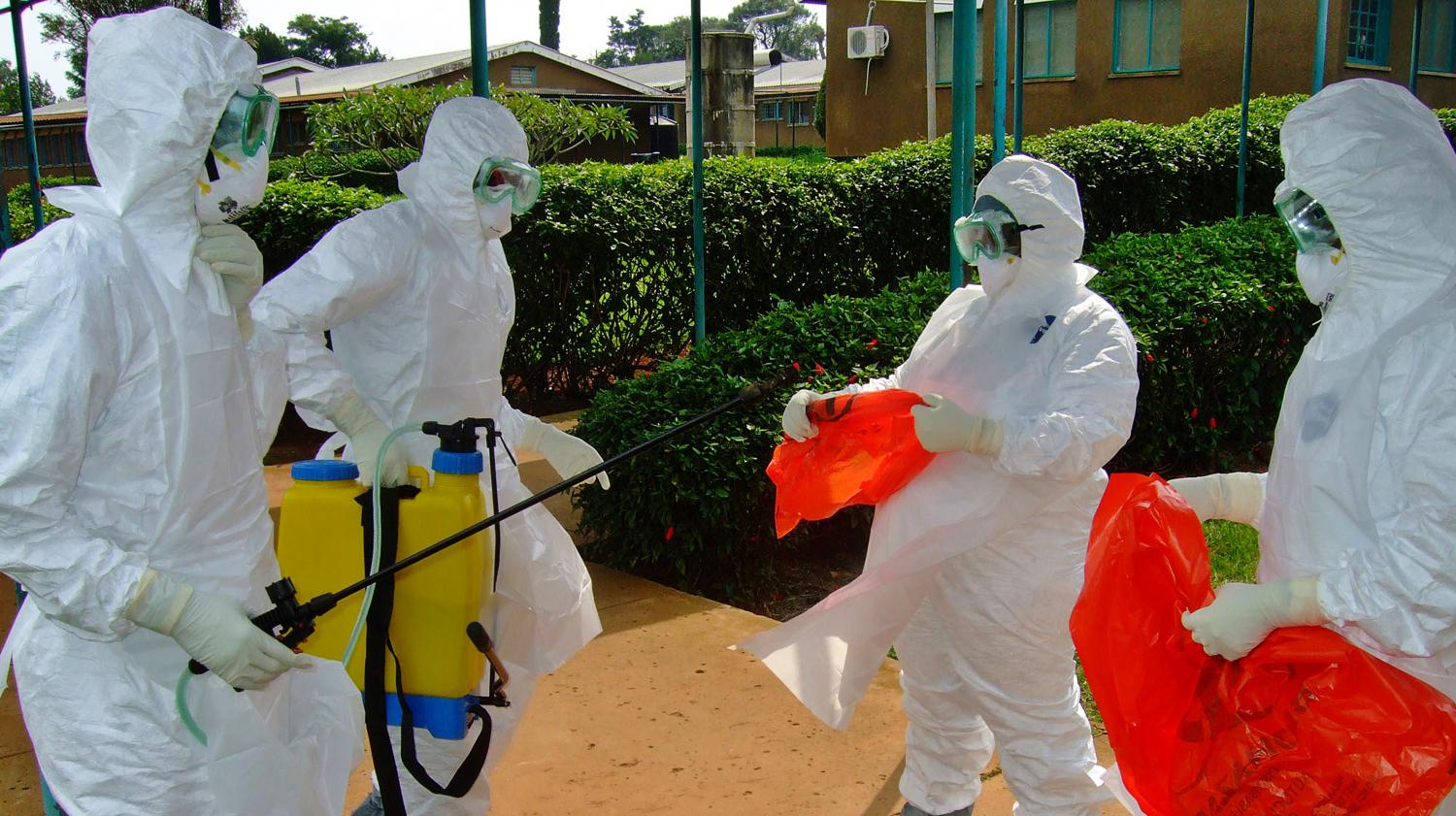Ebola is a rare but deadly infection that causes bleeding inside and outside the body. Although popular movies and books describe major outbreaks of ebola-like disease in the U.S., they’re just works of fiction. Ebola strikes mainly in remote villages of Central and West Africa, but it has spread to some African cities, too.
The disease, also known as Ebola hemorrhagic fever or Ebola virus disease, kills up to 90% of people who are infected.
ALSO READ: Nigeria Now Under Threat Of Ebola Virus – FG Warns
ALSO READ: Deadly Ebola Virus Claims More Lives, Spreads To Other West African Countries
How Do You Get Ebola?
You can get Ebola by coming into contact with the blood or body fluids of an animal or person who is infected.
People often get sick with Ebola when they care for or bury a person who has the disease. Someone also can catch the virus by touching contaminated needles or surfaces.
What Are the Symptoms of Ebola?
Symptoms of the Ebola virus show up 2 to 21 days after someone is infected. As the virus spreads through the body’s cells, it damages the immune system and organs. Ultimately, Ebola causes levels of blood-clotting cells, called platelets, to fall, which can lead to severe bleeding.
Many of the early symptoms of Ebola look like the flu or other mild illnesses. They include:
- Fever
- Headache
- Muscle aches
- Sore throat
- Weakness
- Diarrhea
As the disease gets worse, people who are infected may develop:
- Bleeding inside and outside of the body
- Rash
- Trouble breathing
How Can You Tell if Someone Has Ebola?
Sometimes it’s hard to tell if a person has Ebola from the symptoms alone.
Doctors may first test for other diseases that have the same symptoms as Ebola, such as:
- Cholera
- Hepatitis
- Malaria
- Meningitis
- Typhoid fever
Tests of the blood and tissues, such as the ELISA test, also can help diagnose Ebola.
If someone might have Ebola, they should be isolated from the public immediately to help prevent the spread of Ebola.
How Is Ebola Treated?
Right now there is no real treatment or cure for Ebola. Doctors try to manage people’s symptoms by giving them:
- Fluids and electrolytes through a vein
- Nutrition
- Oxygen
How Can You Prevent Ebola?
There is no vaccine to prevent Ebola. People can avoid catching the disease by not traveling to areas where the virus is found.
Health care workers can prevent infection by wearing masks, gloves, and goggles whenever they come into contact with people who may have Ebola.
What Causes an Ebola outbreak?
Usually an outbreak starts when someone comes into contact with the body fluids or waste of infected animals, such as monkeys, chimps, or fruit bats. Once a person is infected, he or she can then spread it to others.
There are five different types of Ebola virus that cause the disease. Four of them are known to cause the disease in humans.
The Ebola virus first appeared during two 1976 outbreaks in Africa.
Ebola gets its name from the Ebola River, which is near one of the villages in the Democratic Republic of Congo where the disease first appeared.
(via Web MD, READ MORE at World Health Organisation)







